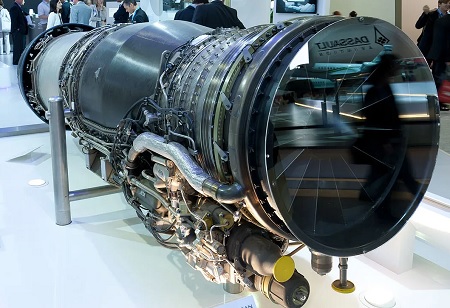
India and France Achieve Significant Accord Regarding Jet Engines

 During President Emmanuel Macron's visit to India, Jawed Ashraf, India's Ambassador to France, highlighted a noteworthy progress in defense and aerospace cooperation between the two nations. Safran, a fighter jet engine manufacturer, has committed to a comprehensive technology transfer to India as part of their joint venture. This development is significant, as it has the potential to bolster India's autonomy in defense technology and strengthen the strategic alliance between the two countries.
During President Emmanuel Macron's visit to India, Jawed Ashraf, India's Ambassador to France, highlighted a noteworthy progress in defense and aerospace cooperation between the two nations. Safran, a fighter jet engine manufacturer, has committed to a comprehensive technology transfer to India as part of their joint venture. This development is significant, as it has the potential to bolster India's autonomy in defense technology and strengthen the strategic alliance between the two countries.
The Safran-India technology transfer agreement for the Shakti jet engine project is comprehensive, surpassing previous collaborations. Safran commits to transferring all technology, encompassing vital information in design, development, certification, production phases, and manufacturing methods. This extensive transfer is crucial for advancing jet engine technology, focusing on design aspects and metallurgical considerations.
Aligned with India's long-term defense goals, the technology transfer integrates seamlessly with future defense objectives. High-level meetings between French President Emmanuel Macron and Prime Minister Narendra Modi have strengthened strategic alignment, emphasizing collaborative development and production ecosystems. Examples include joint combat aircraft engine development and industrial cooperation for heavy-lift helicopters under the Indian Multi-Role Helicopter (IMRH) program.
The challenges of designing and producing a jet engine include high temperatures and complex metallurgical aspects. Thermal control is essential, requiring materials and coatings withstanding temperatures over 1,800 degrees Celsius. Challenges extend to endurance of materials, aerodynamic designs, efficient cooling systems, structural analysis and advanced electronic control systems.
The Safran agreement is expected to address these challenges, marking a significant step for India's technological independence. Gaining expertise in design, development, and manufacturing processes, India aims to lead in aerospace technology, reducing risks associated with external dependence in critical defense domains. The agreement highlights the robust relationship between France and India, emphasizing mutual trust and a shared commitment to a secure and technologically advanced future. This partnership reflects India's broader foreign policy, emphasizing diverse global alliances and securing strategic independence through multilateral defense cooperation.

